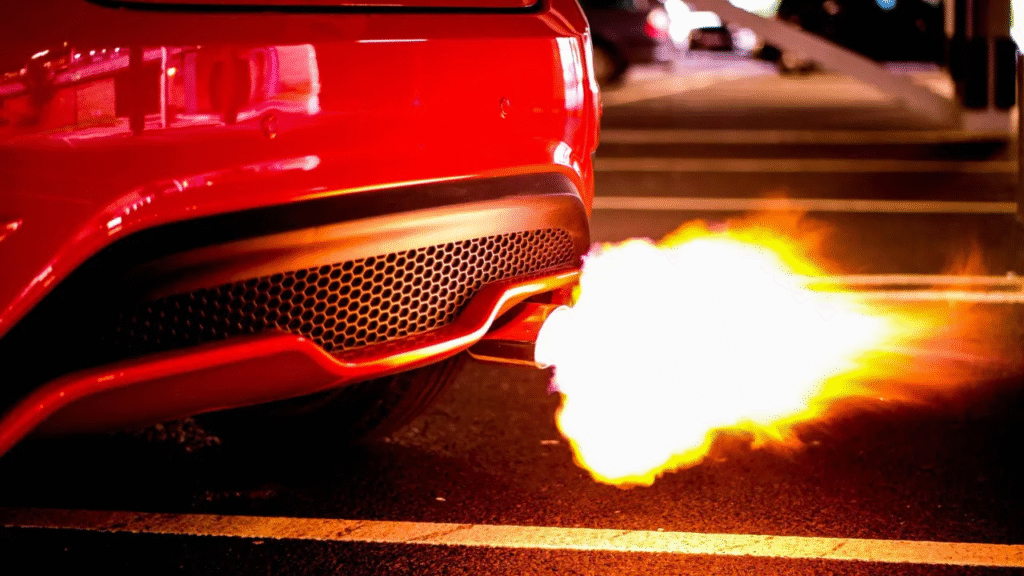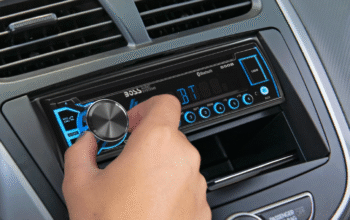If you’ve ever experienced odd noises coming from your car’s engine, you’re not alone. Egine noises are some of the leading early warning signs that something is wrong with your vehicle. While some noises are not serious, some can indicate more serious problems that you need to take care of right away. It gets better! You don’t even have to be a professional mechanic to start recognizing and diagnosing engine noises.
This beginner’s guide will consider the most common engine noises, what they mostly mean, and how to consider fixing them, or if you just need to know when to get help.
Why Engine Noises Matter
A car’s engine is a complex mchine made up of hundreds of moving components. When a problem begins to develop, the first signal your car will probably give is a sound. Whether it’s knocking, clicking, hissing, or whining, a sound is the first set of signals you will get when something goes wrong. Don’t ignore these sounds – the more you ignore them, the more costly the repairs will be later. Understand what these sounds may mean, and you can take immediate action to avoid being stuck by the roadside, avoid a costly breakdown, and elongate your engine’s lfe.
Common Car Engine Noises and What They Mean
Let’s look at the most frequently heard engine noises, their possible causes, and what steps you can take.
1. Knocking or Pinging Sound

What it sounds like: A repetitive tapping or knocking noise, especially during acceleration.
Possible causes:
- Low-octane fuel or bad gas
- Incorrect ignition timing
- Carbon buildup on pistons
- Worn-out spark plugs
What to do:
- Switch to higher-octane fuel if you’ve been using regular gas
- Check and replace spark plugs
- Use a fuel system cleaner to remove carbon buildup
- If the problem continues, a mechanic may need to adjst the ignition timing
2. Ticking or Clicking Noise

What it sounds like: A fast-paced ticking sound that speeds up with the engine.
Possible causes:
- Low engine oil level
- Worn-out valve lifters
- Faulty oil pump
- Dirty oil filter
What to do:
- Check your engine oil level and top up if it’s low
- Change your oil and filter if it’s overdue
- If ticking continues, you might need a professional to inspect the valve train
3. Hissing Sound

What it sounds like: A high-pitched hissing, often heard after the engine is turned off.
Possible causes:
- Leaking vacuum hose
- Coolant escaping from a radiator or hose
- Overheating engine
What to do:
- Open the hood and inspect for any wet spots, steam, or cracks in hoses
- Check the coolant level in the reservoir (only after the engine is cool)
- If the problem is a vacuum leak, you may need to replace the hose
4. Squealing or Screeching Sound

What it sounds like: A sharp squeal, usually when starting the engine or turning the steering wheel.
Possible causes:
- Loose or worn serpentine belt
- Failing alternator belt
- Worn power steering pump
What to do:
- Inspect the belts for cracks or looseness
- Tighten or replace the belt as needed
- Belt dressing spray can help reduce temporary noise but isn’t a permanent fix
5. Grinding Sound

What it sounds like: A rough, metallic grinding when you start the car or shift gears.
Possible causes:
- Faulty starter motor
- Transmission issue
- Engine mount problems
What to do:
- If grinding occurs during starting, it could be the starter motor gear misaligning
- If it happens while driving or shifting, consult a mechanic to inspect your transmission and mounts
6. Popping or Backfiring

What it sounds like: A loud pop or bang from the engine or exhaust.
Possible causes:
- Fuel mixture too rich
- Bad ignition timing
- Damaged spark plug wires
- Exhaust leak
What to do:
- Replace spark plugs and wires if they’re old
- Check for leaks in the exhaust manifold
- Get the air-fuel mixture checked by a professional if you’re unsure
7.Whining Noise

What it sounds like: A continuous high-pitched whining when driving or idling.
Possible causes:
- Worn power steering pump
- Failing alternator
- Transmission fluid issues
What to do:
- Check power steering fluid level and top it up
- If noise changes with engine speed, have your alternator tested
- Listen while in different gears to isolate transmission-related whining
Basic Tools to Help You Troubleshoot Noises
You don’t need a full garage to start diagnosing engine noises. Here are a few tools that can help:
- Mechanic’s stethoscope: Helps pinpoint the source of internal noises
- OBD2 scanner: Can help identify error codes if the check engine light is on
- Flashlight: For visually inspecting belts, hoses, and engine parts
- Phone recorder: Record the sound and play it for a mechanic if you can’t describe it
How to Listen for Clues
When trying to diagnose a car noise, pay close attention to these factors:
- When does the sound occur? (Start-up, idle, acceleration, braking)
- Does it change with speed?
- Where does it come from? (Front, under, or back of the car)
- Is it constant or intermittent?
Documenting these details can help you or a mechanic narrow down the issue faster.
Maintenance Tips to Prevent Engine Noises
While some noises are unavoidable over time, regular maintenance can reduce the risk of serious problems.
- Change your oil on schedule: Dirty or old oil increases wear on internal parts
- Replace belts and hoses regularly: Don’t wait for them to break
- Keep fluids topped off: Low coolant or power steering fluid can cause noise and damage
- Use quality parts and fuel: Poor quality can cause performance issues and noises
- Listen regularly: Get to know what your car normally sounds like so you notice changes early
When to Seek Professional Help
While many noises can be diagnosed and even fixed at home, some need expert attention. You should visit a professional if:
- The noise is loud and worsening quickly
- You notice other symptoms like smoke, overheating, or dashboard warning lights
- You’re unsure and don’t want to risk making it worse
A mechanic can perform deeper inspections using diagnostic tools and ensure your engine is safe and reliable.
Final Thoughts
You don’t need to be an expert to be able to understand car engine noises, it just requires careful listening, some observation, and a desire to learn more information. If you learn to recognize the various noises and what they typically mean, you will respond more quickly, spend less on repairs, and be able protect your vehicle’s performance.
You car is talking to you, whether it’s a harmless tick or a nasty knock you should pay attention to it. Quit ignoring that sound. Use this beginner’s guide to start troubleshooting your vehicle with confidence.




